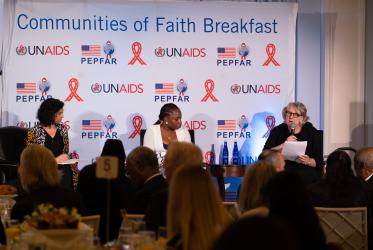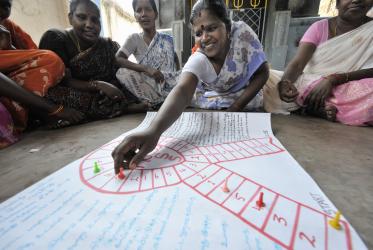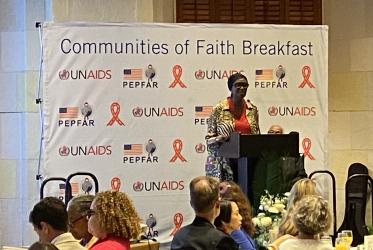Displaying 1 - 20 of 87
Executive Summary
23 March 2024
Faith Actors Reflect on Their Role in Reaching HIV Goals at ICASA
21 December 2023
Recommended Practices to Combat HIV-Related Stigma
A Guidebook for Local Faith Communities
05 October 2023
Faith Sector Implementation of the Global AIDS Strategy
05 October 2023
HIV and AIDS Civil Society Networks and the Faith Sector
Lessons Learnt from Strategic Engagement in India, Dominican Republic, Indonesia, and Jamaica
31 January 2023
On World AIDS today, tackling inequalities is a matter of justice
02 December 2022
WCC to hold webinar on HIV and AIDS response in four countries
16 November 2022
Assembly workshop looked toward ending AIDS epidemic by 2030
19 September 2022

















